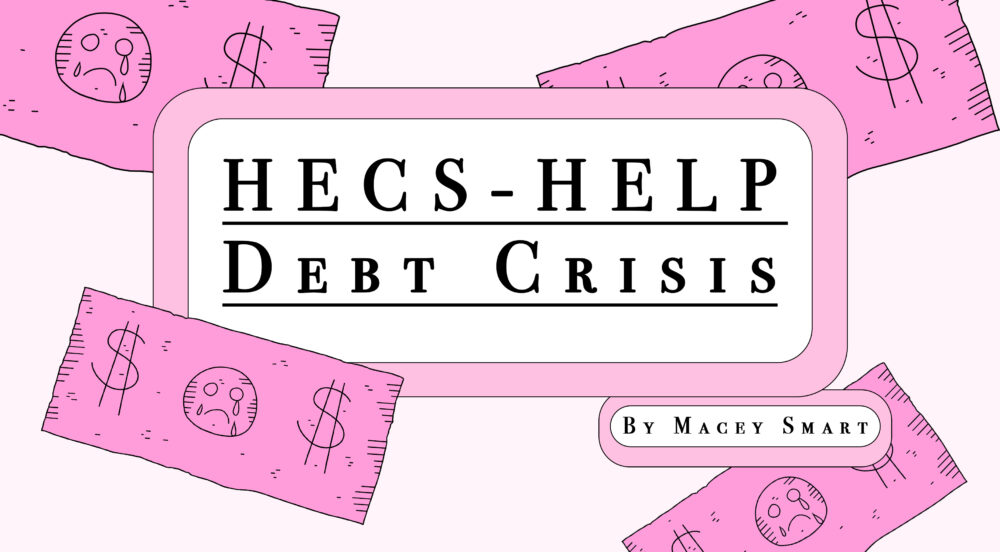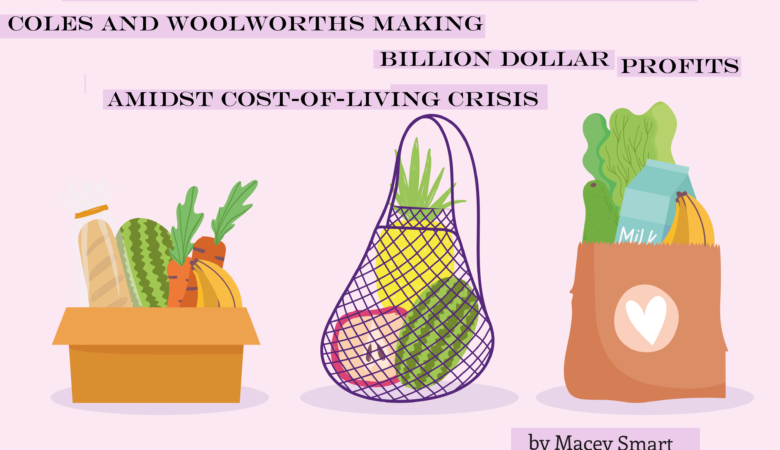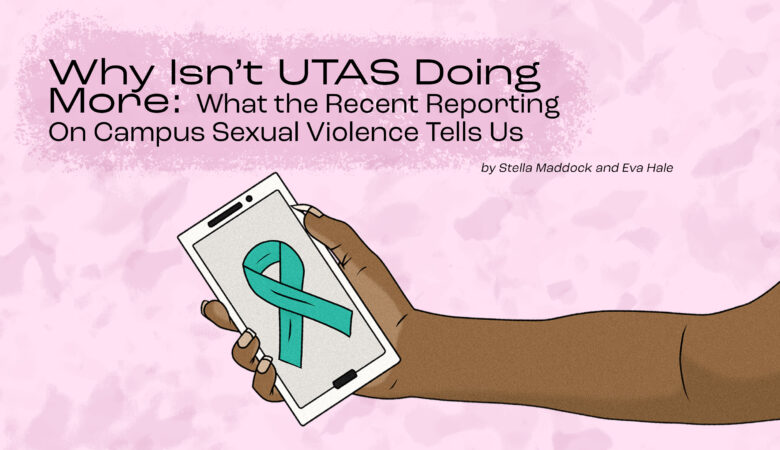It has recently been confirmed that HECS-HELP debts will be increasing by 7.1 per cent on June 1, due to a spike in inflation. This is the highest increase in decades—a historically huge increase. For context, last year, the debts were indexed to 3.6 per cent, which was, at the time, the highest increase of the decade. For the majority of the preceding decade, indexation has averaged between 1 per cent and 2 per cent, never going above 2.6 per cent. As you can see, 7.1 per cent is a major figure that many students and graduates did not see coming.
This increase means many students’ debts will be going up by thousands this year. For some quick figures:
A $10,000 debt will increase by $710
A $25,000 debt will increase by $1775
A $50,000 debt will increase by $3550
The average debt, which sits at around $23,685, will go up by nearly $1700. This increase rate is faster than many graduates can pay off their debt.
What’s more, the payments towards a debt taken out of an individual’s salary are not taken off their debt fortnightly or monthly; rather, they are held all year by the ATO and then removed from their debt at the end of the financial year—after indexation has been applied. This means contributions made throughout this financial year will only take effect after the loan has already increased 7.1 per cent. For some people, this means that their loan will still go up, despite a whole year’s worth of repayments; after indexation, their loan will be higher than it was this time last year.
Technically, HECS-HELP debts are interest free; they are often purported to be “good debt”, as they do not accrue interest, are paid off based on your income, and cease to exist once the debtholder dies. Of course, these terms are better than most debts. However, this does not mean that HECS-HELP debts don’t increase; the debt rises with inflation, as an indexation rate is applied to the debt every year. Usually, as I explained earlier, this is a minimal increase of 1-2 per cent. This year’s increase is a whole different story.
Australia, and much of the world, is currently experiencing a cost-of-living crisis.
Last year, inflation rose to 7.8 per cent, the highest figure in the past 32 years. Along with the prices of food, fuel and other essentials, rents have been skyrocketing, with the median Australian rental price increasing 10%. We are also experiencing historically low rental vacancy rates, meaning many are forced to move into housing they simply cannot afford. With wages not increasing, many Australians are struggling to keep up with the rising cost of living; the added stress of a huge rise in HECS-HELP debt is the last thing anybody needs.
HECS-HELP debt also impacts an individual’s eligibility to borrow money from banks, stopping many from accessing home loans and other personal loans. This HECS-HELP increase will lock even more young people out of the housing market, a market that is already increasingly difficult to crack into. Abbey (21), who is currently studying Medicine, fears how this debt will affect her future: “it’s already hard enough to buy a house without this thrown in the mix… 7 per cent is a punch in the guts.” She notes that incomes are not adjusting with the cost of living, yet this is not being “brought into the equation.” While Abbey recognises her own privilege, in that once she graduates her degree, she will most likely be earning enough to pay it off without being affected too much, she feels students are being “kick[ed] while [they] are down.”
Recently, the Greens proposed a bill to freeze HECS debt indexation, as well as raise the minimum repayment income to the median wage. As they noted, this would ease stress for many lower income earners, which is especially needed during the current cost-of-living crisis. Despite this years’ indexation rate being huge compared to previous years, and despite the fact that wages have not increased to match this inflation, the government rejected the Greens’ bill.
Tara (34), who graduated with a Master of Teaching in 2018, says she is “really disgusted” by the government’s decision. Tara feels the government “know full well that people can’t afford this with the cost of living,” and they “do not take students or precariously employed graduates seriously as a demographic.”
This record increase to debts is just another in a series of blows dealt to students and graduates by the government in recent years. In 2018, the minimum repayment income, which was $52,000, was lowered to just over $45,000 (this has since risen to $48,361 with indexation). This is a figure that is only $6000 above minimum wage, and is below the median wage, which is around $62,000.
A second blow was dealt in 2020, when the government decided to raise the cost of degrees in the humanities by 113 per cent, and degrees in law, economics and accounting by 28 per cent.
Another student, Andie (18), says they are “seriously saving” to pay for their next semester upfront, as they did for their first. Andie is studying a Bachelor of Arts, one of the degrees hit hardest by the 2020 fee hike, and for them, “deferring to HECS has become a last resort.” Andie feels that “education is being penalised for the general public.”
The government’s decision not to freeze HECS-HELP indexation, or raise the minimum repayment threshold, is just another way that they’ve shown they do not care about students or graduates. As Tara says, “the threat of debt stops so many people from working class backgrounds from going into higher education, and here is a government who claims to represent those people[,] willingly making it worse.” Higher education should not be an opportunity for only the wealthy, yet the government continually makes decisions to dissuade lower socioeconomic people from studying.
References
“Education and Other Legislation Amendment (Abolishing Indexation and Raising the Minimum Repayment Income for Education and Training Loans) Bill 2022.” Parliament of Australia, April 2023, https://parlinfo.aph.gov.au/parlInfo/download/committees/reportsen/025035/toc_pdf/EducationandOtherLegislationAmendment(AbolishingIndexationandRaisingtheMinimumRepaymentIncomeforEducationandTrainingLoans)Bill2022.pdf;fileType=application%2Fpdf. Accessed 12 May 2023.
Hamilton-Smith, Lexi. “Greens call for abolition of indexing on HECS/HELP loans as student debt balloons, senate report to be tabled.” ABC News, 13 April 2023, https://www.abc.net.au/news/2023-04-13/hecs-senate-inquiry-submissions-pressure-created-by-indexation/102212642. Accessed 12 May 2023.
Hermant, Norman and Mary Lloyd. “’Exhausted’ low-income earners finding fewer ways to cut back look to budget for cost-of-living relief.” ABC News, 7 May 2023, https://www.abc.net.au/news/2023-05-07/cost-of-living-low-income-cutting-back/102119634. Accessed 12 May 2023.
“LET’S FREEZE STUDENT DEBT.” The Greens, https://greens.org.au/campaigns/lets-freeze-student-debt. Accessed 12 May 2023.
McDonald, Peter. “Australia’s Cost of Living.” Parliament of Australia, https://www.aph.gov.au/About_Parliament/Parliamentary_departments/Parliamentary_Library/pubs/BriefingBook47p/CostOfLiving. Accessed 12 May 2023.
“Study and training loan indexation rates.” Australian Taxation Office, 2 May 2023, https://www.ato.gov.au/rates/study-and-training-loan-indexation-rates/. Accessed 12 May 2023.
Taylor, David. “The cost-of-living crisis has roots in property but whether you rent or pay a mortgage, there’s a dark tunnel ahead.” ABC News, 11 March 2023, https://www.abc.net.au/news/2023-03-11/housing-crisis-cost-of-living-personal-debt/102077818. Accessed 12 May 2023.








